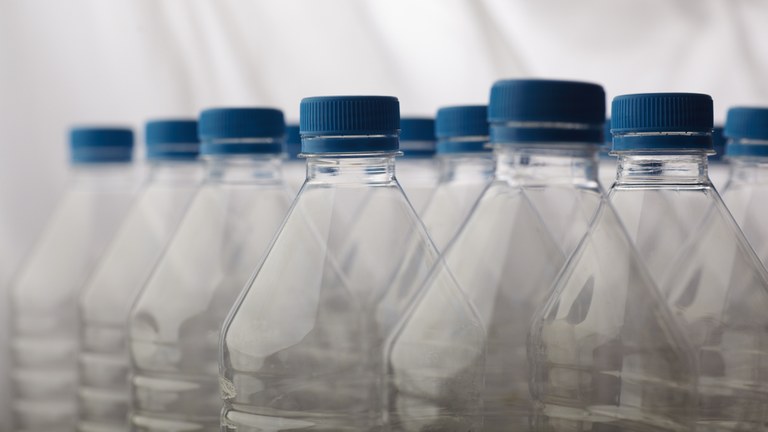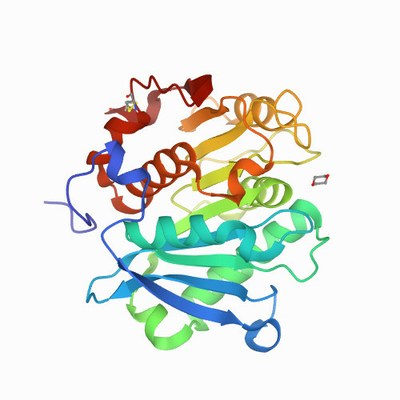
Picture of Water created by photogenia - www.freepik.es
Cerdanyola del Vallès, 14 October 2020. Researchers from the Toulouse Biotechnology Institute (TBI) - an INSA Toulouse/INRAE/CNRS Joint Research Unit - and Carbios - a French green chemistry company that is a pioneer in bioplastics engineering – describe in this article the development of a new enzyme that can biologically depolymerise plastic waste made of poly(ethylene terephthalate) (PET) and facilitate its recycling into new bottles. PET is one of the most common thermoplastic polymers on the market and is used to manufacture bottles, food packaging and polyester textiles. The development of this novel enzyme places this technology at the forefront of efforts to initiate a true transition towards the circular economy and thus better protect our oceans and planet against plastic pollution.
They were able to resolve the crystal structure of the proteins studied using synchrotron light for X-ray data collection. More specifically, they collected diffraction data for the Leaf-branch cutinase S165A variant at the XALOC beamline in the ALBA Synchrotron.
Following several years of research by both academics and industry, Carbios and TBI have been able to enhance the depolymerisation of PET waste: the enzyme they have engineered can break down 90% of PET over just 10 hours. By combining molecular design and engineering, the French scientists have in parallel been able to improve the thermostability and activity of this PET hydrolase which can very efficiently break down PET into terephthalic acid and mono ethylene glycol, achieving a productivity of 16.7 g/L/h terephthalic acid from a suspension of 200 g/kg post-consumer PET waste. In collaboration with the Critt Bio-Industries from INSA Toulouse, Carbios succeeded in purifying the monomers to further manufacture new bottles, thus demonstrating the circular nature of the process.
This constitutes major progress, as the yield has been multiplied 100-fold compared to previously published processes. It is a world-first that opens the way to deploy a circular economy technology that is applicable to all PET waste and offers a breakthrough solution to dealing with the current environmental and industrial problems posed by the massive use of plastic materials.

Figure: High-resolution crystal structure of hydrolase Leaf-branch cutinase S165A variant. / Protein Data Bank
Reference: Tournier, V., Topham, C.M., Gilles, A. et al. An engineered PET depolymerase to break down and recycle plastic bottles. Nature 580, 216–219 (2020). https://doi.org/10.1038/s41586-020-2149-4
Link to the original news: https://www.inrae.fr/en/news/development-new-enzyme-recycling-pet-plastic-waste-new-bottles




